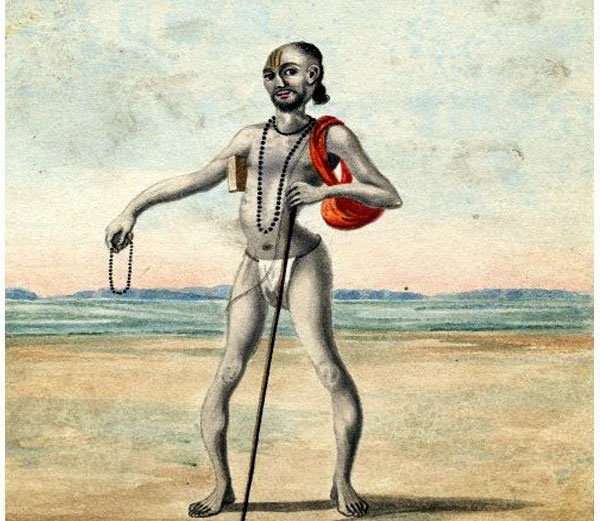observations
hariḥ oṁ
~~~~~~
namasté
I happened to bump into a few things as of late and thought to share a few of them with you...
- I read a bumper sticker that said, If I am not what I do, then who am I ?
- I read, I have no use for books for my spiritual development, it is of no value, just words.
- A conversation with a friend brought out the notion of being reborn... the conversation was coming back again and again and the joke ( as I said it) was really on us...
Let me offer these one at a time , in separate posts so to avoid too much co-mingling of ideas.
If I am not what I do, then who am I ?
This in and of itself can be considered the ‘flagship’ of ignorance. When one does not know, then it is quite easy to come to a conclusion that I am what I do. I therefore am or could be a manager, a baker, a mom, dad, student, citizen, good person, bad person, etc. etc. or a myriad of things, professions and relations.
Yet what are we told? Let’s look to one line of the aṣṭāvakra¹ gītā, 1st chapter 8th verse:
अहं कर्तेत्यहंमानमहाकृष्णाहिदंशितः ।
नाहं कर्तेति विश्वासामृतं पीत्वा सुखी भव ॥१-८
ahaṁ kartetyahaṁmānamahākṛṣṇāhidaṁśitaḥ |
nāhaṁ karteti viśvāsāmṛtaṁ pītvā sukhī bhava ||1-8
1st line
- ahaṁ or ‘I’ ; some consider this the proxy for ahaṃkaraṇa ; yet ahaṁ in its ~purest~ state is pure ‘I’ or SELF
- kartetyāhaṁ - pertaining to ‘I’ am the doer ( I added the ‘ā’ )
- mānamahā– opinion, idea, conception + maha – strong
- kṛṣṇa-ahi-daṁśitaḥ - bitten (daṁśitaḥ) + black (kṛṣṇa) + snake (ahi)
2nd line
- nāhaṁ - I am not
- karteti - karta+iti¹ = karteti or 'thus separation' ; also ( I believe also it implies kartṛ + ti or (he) the one who makes or does or acts or effects , a doer)
- viśvāsāmṛtaṁ pītvā sukhī bhava
- viśvā – to pervade
- sāmṛtaṁ – to remember
- pītvā – drink ( or having drunk)
- sukhī – one who loves pleasure ; yet I think this should have been sukhaḥ meaning virtuous , happy, prosperous, gentle, ease
- bhava – production; well-being; bringing into existence
This says in general that you have been bitten by a black snake ( code for karta used in the verse and = separation, distinction or diversity) and you have the strong opinion (mānamahā) that you are the doer (kartṛ); come back to, or consume (pītvā) the remembrance (sāmṛtaṁ) that you are not the doer. Some write , 'drink the antidote of faith' for this sāmṛtaṁ or remembrance to return.
The deal is, we are 'outfacing' beings. Everything from the intellect outwards is looking out... we can even consider our thoughts and feelings outward... that is, they can be inspected . This is what we 'expect' - to 'inspect'. We look for things, actions, feelings, places beyond the core level of Being (code for Self, or simple-and-pure awareness).
Then someone says that which is 'you' is not caught up in this doing of running here and there, even to find out who you are! This 'you' is residing even behind thought, behind the intellect. It is not conspicuous. It is quite innocent and silent. It allows us to do all the running around yet it never needs to move (nor can it) one millimeter, ever.
So, in that same bumper sticker mentioned above i.e. If I am not what I do, then who am I ? we can find the beginnings to the answer by asking who am I ?
For some this approach is worthy of their time and effort; for others , not so much.
I wrote above, ,
I'd like to return to this again for bullet point 3 offered above, as there are various states and conditions of knowing.
इतिशिवं
iti śivaṁ
terms
- who is the muni aṣṭāvakra-ji?
- Aṣṭāvakra is that person (son of kahoḍa) who is ‘marked’ with 8 bent or twisted forms ( deformities) those were his feet, hands, knees, chest and neck were bent. Even when you look at his name in devanāgarī saṃskṛtā अष्टावक्र you can count 8 twists. Oh, and the deformities? His his feet, hands, knees, chest and neck were bent ( 2+2+2+1+1); He was son of kahoḍa and the great teacher of king janaka.
- iti - note this term also is used to indicate a quote; In this use it would suggest "the doer" if viewed as karteti . yet in the sentence it is nāhaṁ karteti which is 'I am not the doer' ; See post 2 below for another example of this application of 'iti'.

Last edited by yajvan; 26 October 2016 at 10:18 PM.
यतस्त्वं शिवसमोऽसि
yatastvaṁ śivasamo'si
because you are identical with śiva
_





 Reply With Quote
Reply With Quote
Bookmarks